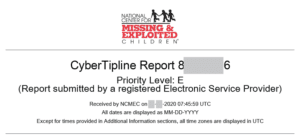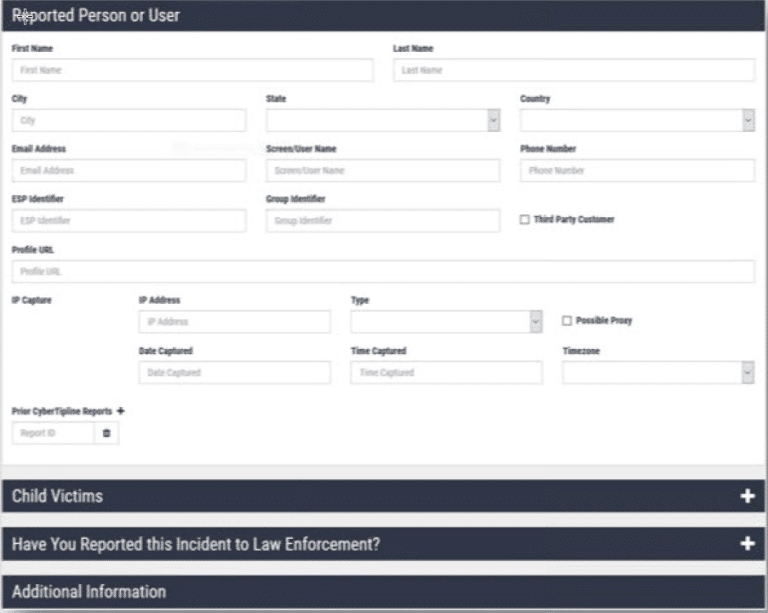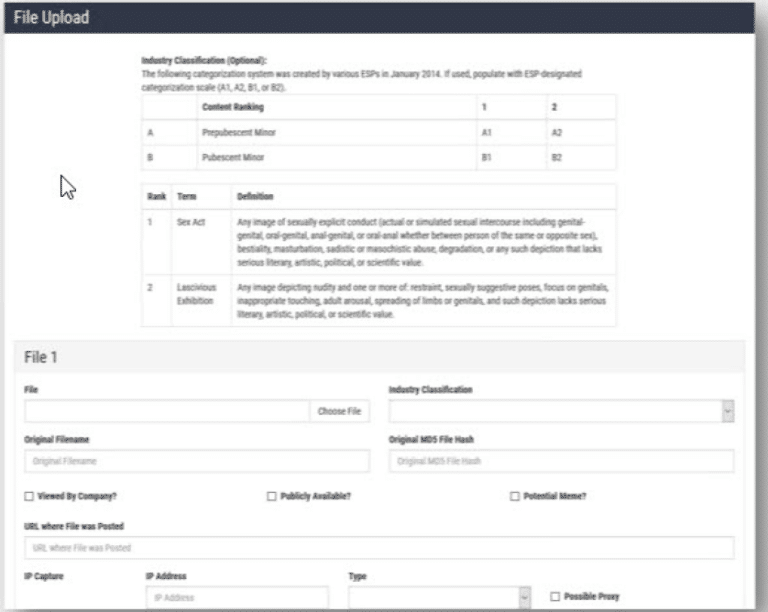
CRIMINAL DEFENSE TECH TIDBIT – Challenging Historical Cell Site Analysis
October 23, 2024





Electronic Service Providers (ESPs) are required under 18 U.S. Code § 2258A to report suspected Child Sexual Abuse Material (CSAM) to the National Center for Missing and Exploited Children (NCMEC). NCMEC is a nonprofit organization funded by Congress. While ESPs are not mandated to actively search for CSAM, they may voluntarily choose to do so.
ESPs employ several methods to identify and report suspected CSAM:
When ESPs identify suspected CSAM, they report it to NCMEC through the CyberTipline. Reports can be submitted manually via a form, through the NCMEC portal, or through automated electronic submissions.


A CyberTipline report is an investigative lead—not direct evidence. Understanding the key sections of these reports is essential:

These disclaimers underscore that CyberTipline reports are not official evidence and should not be treated as such.

This establishes whether or not the officer has looked at the files.
NCMEC forwards CyberTipline reports to Internet Crimes Against Children (ICAC) task forces in the state where the alleged offense occurred. This determination is based on IP address data and subscriber information provided in the report.
However, challenges arise in this process. Law enforcement often delays acting on CyberTipline reports. During this time, ESPs may delete the reported account and the associated data due to retention policies. As a result, ESPs are frequently unable to respond to discovery requests or validate the files they originally submitted. ESPs often warn law enforcement to issue warrants promptly to avoid data loss.
Law enforcement search warrant applications include descriptions of the suspected CSAM files. These descriptions may come from one of two sources:
In some cases, officers do not view the files themselves and instead rely solely on the hash-based descriptions.
To verify how evidence was handled and ensure due process, defense teams should focus on discovery. Key items to request include:
Understanding these processes is essential for ensuring that investigative practices align with legal standards and for identifying potential weaknesses in the handling of CSAM evidence.
In 2024 Garrett Discovery (NACDL Affinity Partner) Digital Forensic experts performed work on 240 sex crime cases. Pay attention to their LinkedIn page as they post weekly, their acquittal’s or dismissed cases. Call the experts at Garrett Discovery for a free consultation and winning strategy at 888.822.5077
